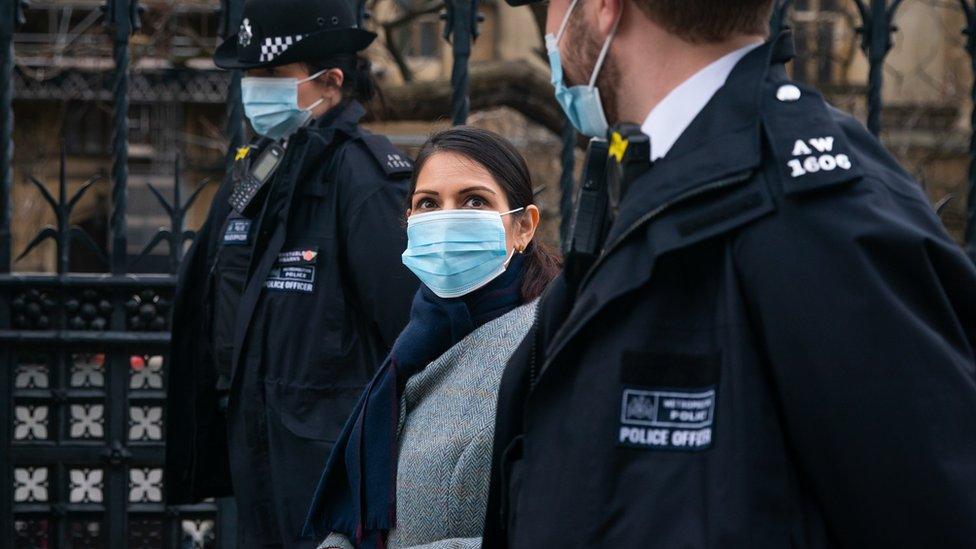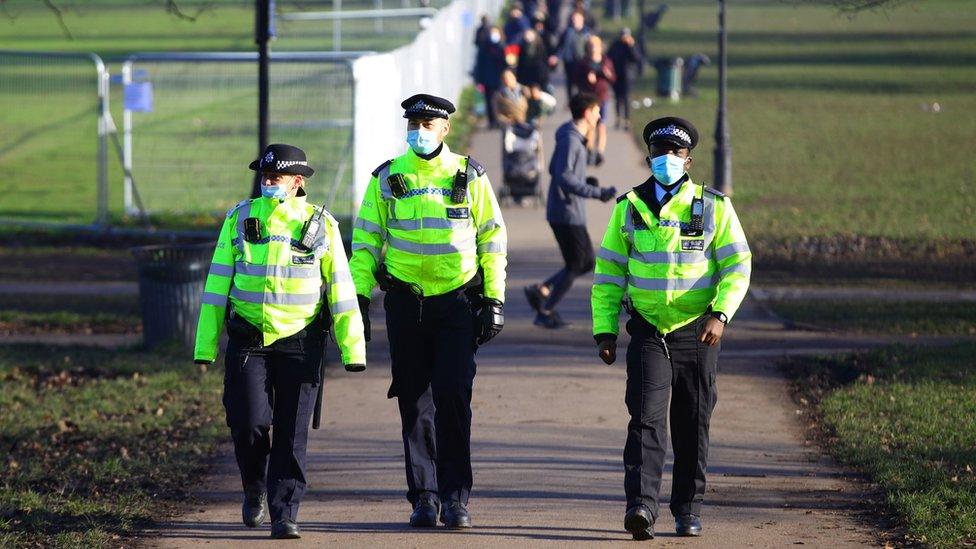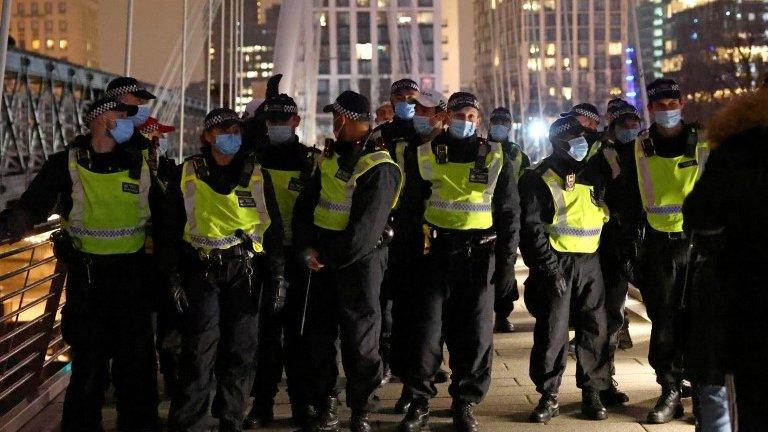Covid: Police feel betrayed over vaccinations priority, Priti Patel told
- Published

Police officers feel a "deep sense of betrayal" that they were not prioritised for vaccination, the Police Federation chairman has said.
John Apter said he pressed the home secretary to ensure officers were moved up the vaccine priority list.
Ministers lobbied the vaccine advisory body but Priti Patel said the government had to accept its decision not to make police an exception.
She praised the police for "not flinching" in the face of the pandemic.
Mr Apter revealed at the annual conference of the federation - which represents officers in England and Wales - that he had held "robust discussions" about vaccinating officers with Ms Patel.
He said he had been told police could be prioritised during the rollout, but "the government's warm words became lame actions".
He told the conference "the result is that my colleagues do feel a sense, a deep sense, of betrayal".
The conference, taking place online, was shown a video of a Devon and Cornwall officer, called Leanne, who said she was 26 and concerned about working alongside officers from all over the country at the G7 meeting, despite not being vaccinated.
In her speech Ms Patel said: "We absolutely had to prioritise the vaccine rollout in line with the overriding risk factors of age and clinical vulnerability."
Answering questions from officers she said: "People were dying. We had terrible death rates in the country. We had the elderly and vulnerable who were in desperate need."
But she said the "phenomenal" vaccine rollout meant officers would be vaccinated.
Back in January the home secretary had said there was "a lot of work" taking place to get police and other front-line workers moved up the priority list but the rollout continued on an age basis.
The order in which the vaccine programme has progressed has been based on the advice of the Joint Committee on Vaccination and Immunisation (JCVI).
Vaccination began with people aged 80 and over, as well as the clinically extremely vulnerable and some health and social care staff, as the JCVI deemed these groups were at greatest risk of death and serious illness.
In February, Prof Wei Shen Lim, Covid-19 chair of the JCVI, said, as occupation was not well-recorded in GPs' records, running the vaccination programme by people's jobs may have slowed down the whole programme.
Policing minister Kit Malthouse told a conference panel discussion the government "made the case strongly about police officers".
He later added: "We did repeatedly make the case and make the request but obviously the JCVI made the decision that they did.
"From my point of view it's a point of regret that we didn't manage to make our point strongly enough.
"Having said that, as was said earlier, quite a number of officers managed to get vaccinated with spare vaccines, hopefully now everybody is done or will be done shortly."
Ms Patel also told the conference the government was supporting the police by increasing sentences for attacks on emergency workers from 12 months to two years, allowing all officers to carry a Taser, and focusing on their health and well-being.
"Our country depends on you and I have got your backs," she said.
Ms Patel also reiterated her previous call for forces to be quicker to release body-worn footage to counter misleading clips from the public posted on social media.
Additional reporting by Doug Faulkner.
Related topics
- Published20 January 2021

- Published5 January 2021
